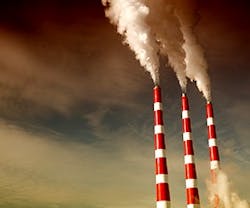Carbon Reduction Policies Pay for Themselves
An oft-cited reason to support carbon reduction policies is the improved air quality and better population health rates that result from reduced CO2 emissions. A new study from MIT, funded by the EPA's Science to Achieve Results program supports this hypothethis. It posits that not only do the benefits help offset the costs of policy implementation, but they may outweigh them – even in the U.S. where air quality is considered to be better than many countries.
The study measured three climate policies relative to their economic costs: a clean-energy standard, transportation policy, and a cap-and-trade program, which mimic policies proposed by the EPA. The study found that savings in the form of avoided medical care and saved sick days could save up to 10.5 times the cost of a cap-and-trade program, outweigh the costs of the clean energy standard by almost $40 billion, and recoup a quarter of costs associated with a transportation policy.
The study, published in Nature Climate Change, is the most detailed one of its kind, comparing the effects of climate policy on the economy, air quality and the health costs associated with treating those affected by air pollution. Also noted was the 231 U.S. counties which exceeded the EPA's regulatory standards for smog and the 118 that surpass standards for fine particulate matter – two of the largest causes of health problems.
"If cost-benefit analyses of climate policies don't include the significant health benefits from healthier air, they dramatically underestimate the benefits of these policies," says lead author Tammy Thompson.
Wondering if your building's air quality could be causing your occupants to suffer as the colder months approach? Take a look at 3 Ways to Improve Indoor Air Quality.
